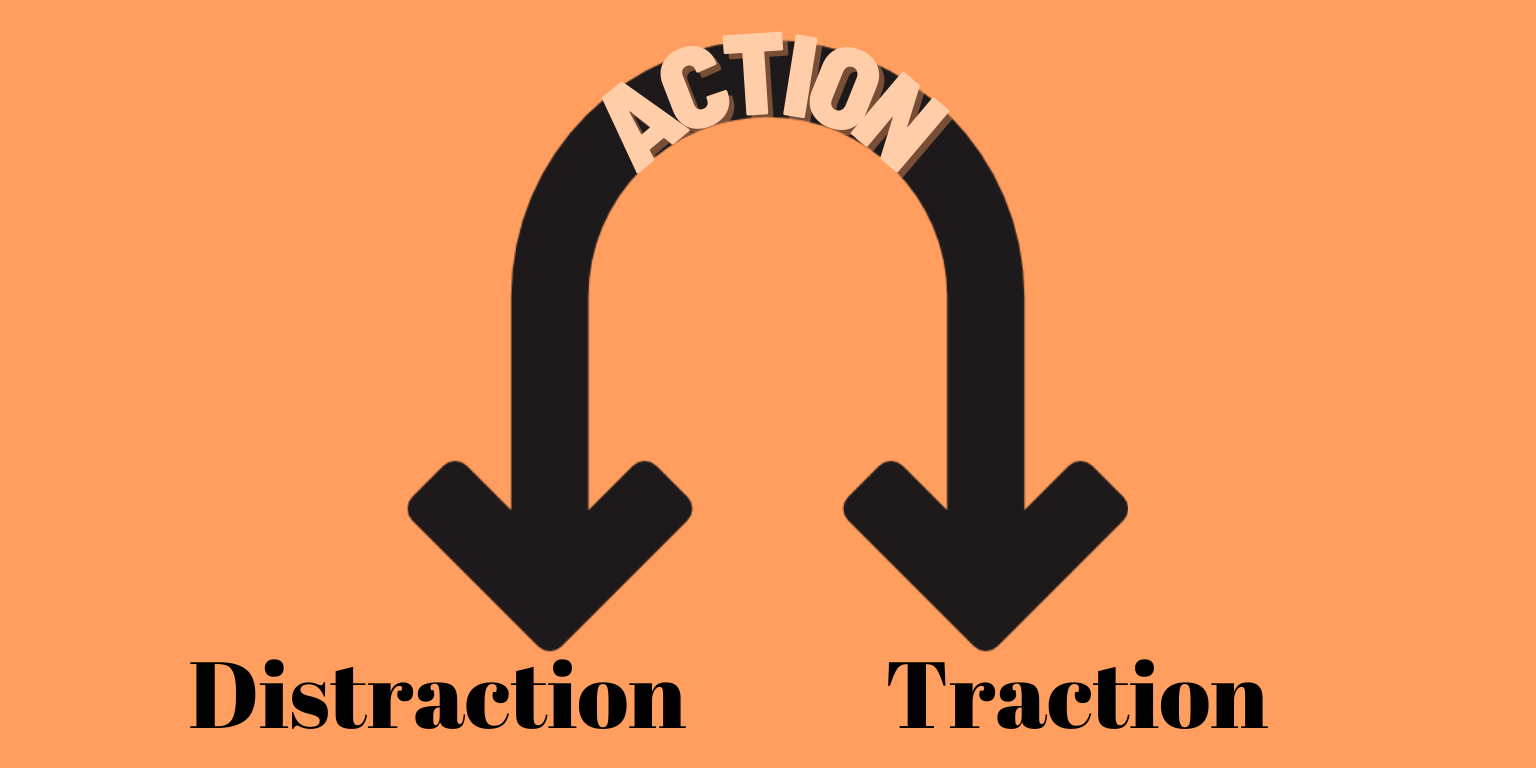How to be less distracted in a distracting world
- Last Updated : March 28, 2024
- 2.1K Views
- 4 Min Read

With every passing moment, the world seems to become more and more distracted. Between the influx of cell phone notifications and the never-ending news cycle, when do we find peace and serenity in our day-to-day life?
Distractions can be frustrating, but the truth is, we are actually hardwired for them. We've all faced countless distractions from the time we were born up until this very moment.
How do we define distraction?
According to Nir Eyal, author of the best-selling book "Indistractable: How to Control Your Attention and Choose Your Life" it would be inaccurate to simply blame external triggers like social media, cell notifications, ambient noise, and general clutter for our lack of focus. In reality, we are likely distracted because of internal triggers.
Internal triggers typically result from our desire to escape uncomfortable emotional states, such as uncertainty or boredom. They are the cause of nearly all of our behaviour. Perhaps the next time we reach for our cell phones, we should ask ourselves if we're doing so out of an internal or external trigger.
Are all distractions bad?
We often face negative consequences due to our inattention. Whether we're sneaking scenes of our favourite TV show, entertaining ourselves with social media posts, checking the score of a pivotal sports game, or trying to follow the ups and downs of the stock market, we are constantly at risk for distraction. This includes the multiple tabs we switch between every time a new task comes up at work. Despite the downsides, many of us are hesitant to change our ways.
That said, there are pros and cons to everything in life, and so is the case with distractions. In fact, there are some distractions that can actually help us.
For instance, doctor-turned-YouTuber Ali Abdaal used to welcome distractions during his time at Cambridge University. While studying for his medical exams in his dorm room, he used to keep his door open so that his friends and colleagues could stop by and talk. Abdaal called these "welcome distractions." Although he still made time to focus on passing his exams, he also achieved his larger goal of making friends and enjoying his time at university.
"Distractions aren’t necessarily your fault, but managing them is your responsibility" — Nir Eyal , Nir and Far Blog
How do we tackle negative distractions?
In order to stay on track, we should ask ourselves the following:
Am I taking conscious steps to manage my time?
If you can answer "yes" to that question, then you are well on your way to raising your productivity. For the rest of us, the strategies below can help minimize our level of distraction.
The 10 Minute Rule
Just like how we learn to say "no" to others, we should also learn to say "no" to our urge to get distracted. While studying acceptance and commitment therapy, Nir Eyal came across the 10-minute rule. The rule asks us to sit with the urge of getting distracted for 10 minutes before actually giving in. In that time frame, the impulse generally tends to disappear. If you still feel the need to pick up your phone or stare out the window for a while, then Eyal suggests giving into the urge and then returning to the task at hand as soon as possible.
Introduce a little bit of inconvenience to trick your brain
"Sometimes success is less about making good habits easy and more about making bad habits hard." — James Clear
In his discussion of behaviour change, author James Clear explains that we can avoid developing bad habits by making it difficult to establish them in the first place.
For example, let's say you've just begun writing a blog post, and you decide to check social media in the name of inspiration. Forty-five minutes go by and you're still scrolling with no end in sight. This is a common situation for many of us, especially when we need to get work done.
Social media does have its benefits, but it's important for us to understand where to draw the line. The productivity YouTuber Thomas Frank suggests logging out of all social media accounts so that it's inconvenient to simply hop on your device and mindlessly scroll whenever you want. This tricks your brain into forgoing the distraction and makes you more likely to focus on your work.
Take steps towards traction

Nir Eyal proposes that we use the term "traction" as the opposite of distraction. While both words come from the same Latin verb "trahere," meaning to draw or pull, Eyal explains that distraction involves actions that move us away from our goals, while traction involves actions that bring us closer. He encourages us to begin our journey from distraction to traction by maintaining an organized calendar.
Time blocking is a helpful productivity method that has been used for centuries. It allows us to break up our daily schedule into assigned sections so we can accomplish both work-related and personal goals. Planning for things that we enjoy is the first step towards traction. When we plan our days, we can avoid the stress that comes with procrastinating and start spending our time on tasks that need our attention.
Sticking with it
No one can be "indistractable" all of the time, and this shouldn't be our main goal. Instead, we need to choose our distractions wisely. It's all about approaching our daily actions with intent. As long as we are consciously managing our attention, we're on the path towards being productive.
 Geena Bharwani
Geena BharwaniHuman widening perspectives. A Product Marketer who believes in the profoundness of life and humor.
Self-proclaimed productivity nerd. Most likely to laugh at my own jokes




